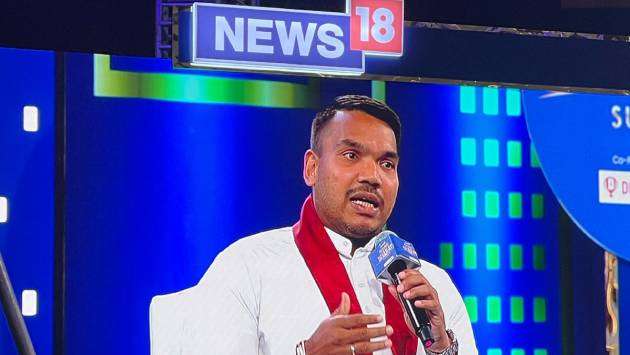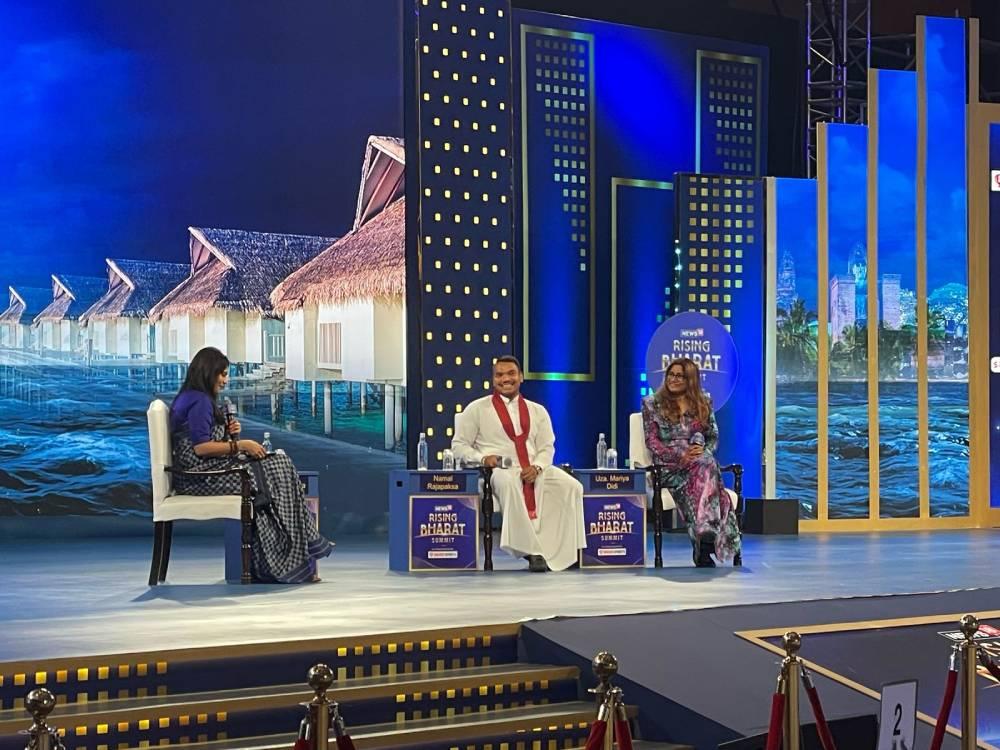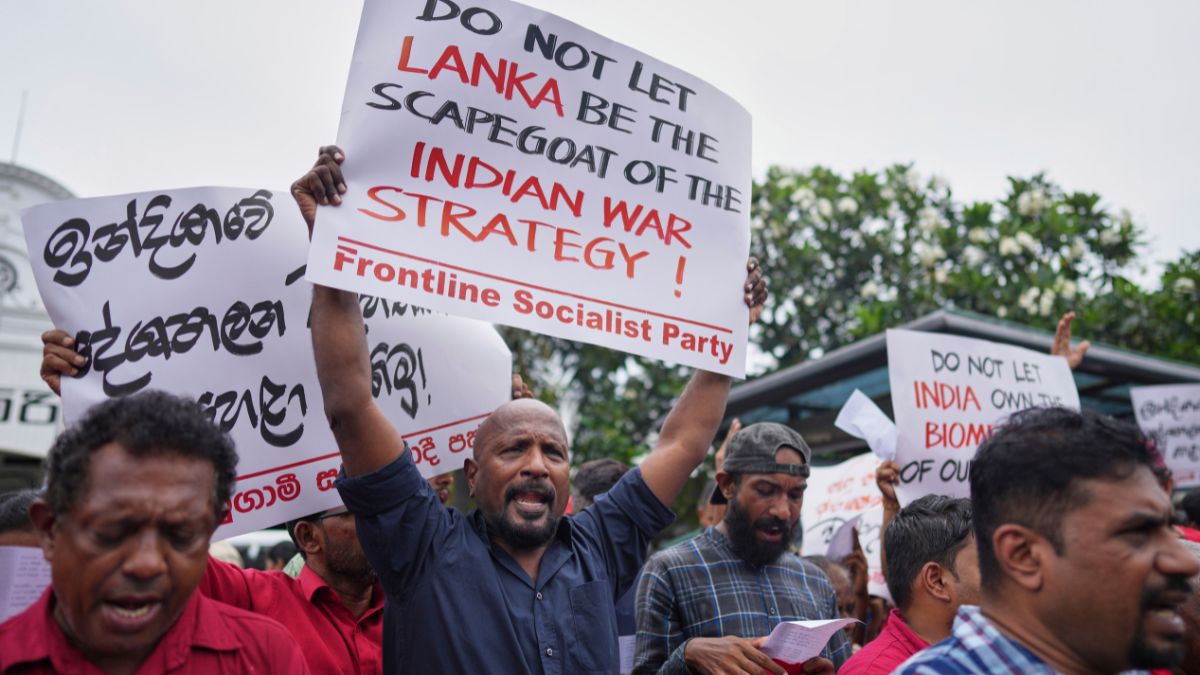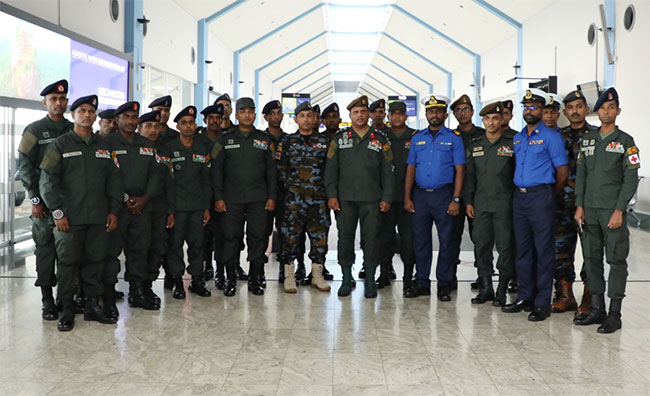From Colonial Crimes to Modern Sanctions: The UK’s Move Against Sri Lankan Military Leaders
April 8th, 2025By Palitha Ariyarathna

Colonialism stands as one of history’s darkest legacies—a calculated system of exploitation that left entire nations scarred. From Asia to Africa, the Americas to the Pacific, powerful empires such as Britain, the Netherlands, Spain, and others plundered lands, oppressed their people, and devastated centuries-old cultures. This legacy also includes the systematic erasure of indigenous populations, often amounting to acts of genocide. Though colonialism is often relegated to history, the echoes of these atrocities still resonate through the structural inequalities it left behind. It is imperative to call attention to these crimes, not only through acknowledgment and reparations but as a reaffirmation of human dignity. By holding colonial powers accountable, the voices of the oppressed can find justice, and humanity can confront one of its darkest chapters.
Colonial empires spanned continents, using similar methods to consolidate power and exploit resources. These systems of oppression often blurred the lines between war crimes, human rights abuses, and genocide. Examples of colonial atrocities include the Irish Famine, during which over a million Irish citizens perished due to British policies that prioritized exports over local food needs, and the Bengal Famine of 1943, where wartime policies caused the starvation of 2–3 million Indians. British colonialism also witnessed the genocide of Tasmania’s Indigenous populations, a near-total annihilation during British colonization. The Mau Mau Uprising in Kenya is another tragic chapter in Britain’s colonial history, where tens of thousands of Kenyans seeking independence were arrested, tortured, or executed in British-run concentration camps.
Similarly, the Dutch Empire’s history is marked by violence, including the massacre of nearly 15,000 inhabitants of the Banda Islands to monopolize the nutmeg trade, and the brutal forced labor practices in the Dutch East Indies that devastated local populations. Under both Dutch and later Indonesian control, the indigenous Papuan people experienced near-total erasure through violence and cultural destruction.
Colonial atrocities extend far beyond Britain and the Netherlands. Portugal dominated much of the transatlantic slave trade, forcing the migration and deaths of countless African slaves in colonies like Angola and Mozambique. Spain’s colonization of the Americas decimated Indigenous populations through warfare, enslavement, and diseases like smallpox. France’s colonial history includes the brutal massacre of Algerians seeking independence, and King Leopold II’s Congo Free State, under Belgian rule, reduced the Congolese population by millions due to forced labor, disease, and widespread killings. These are only a few examples that demonstrate the systematic atrocities perpetrated by colonial powers across the globe.
Sri Lanka’s experience under colonial rule tells a tale of sustained exploitation. Conquered successively by the Portuguese, Dutch, and British, the island became a battleground for resource extraction, cultural subjugation, and systematic manipulation of its people. The British colonial administration implemented divide-and-rule policies that fostered ethnic divisions by restructuring Sri Lanka’s provinces and falsely claimed Tamil homelands, an idea still echoed by separatist movements today. The British also introduced Indian Tamil laborers to work on tea plantations, forever altering Sri Lanka’s demographics and sowing the seeds for lasting ethnic tension.
Colonial accounts, such as those from John Davy, document the brutality inflicted on Sri Lanka’s Kandyan Kingdom. Following the 1818 rebellion, Davy noted that “none of the leading families survived.” Smallpox, starvation, and punitive measures decimated entire populations, while events like the 1848 Matale rebellion exemplify the systemic efforts to break the spirit of the Sinhalese nation.
Dr. Sudat Gunsekara, a prominent scholar and advocate for the preservation of Sri Lanka’s sovereignty, has deeply critiqued the colonial legacy and its effects on the nation’s ongoing struggles. Gunsekara highlights how British colonial policies, especially the introduction of ethnic divisions, laid the foundation for the ethnic tensions that still plague Sri Lanka today. His work calls for a deeper understanding of the way colonial powers intentionally fractured the unity of the Sinhalese nation, causing divisions that continue to impact Sri Lanka’s national identity and political landscape. In his influential works, Gunsekara urges a reevaluation of colonialism’s role in shaping the contemporary challenges Sri Lanka faces, particularly in terms of ethnic strife and the manipulation of historical narratives by foreign actors.
Shenali Waduge, a prominent writer and advocate for Sri Lanka’s sovereignty, has documented the dangers posed by Tamil separatist movements. Her writings highlight the historical inaccuracies and geopolitical manipulations underpinning the Tamil Eelam narrative. For instance, she critiques the Vaddukoddai Resolution of 1976, which transitioned Tamil separatism from political demands to armed militancy, and exposes how foreign governments, NGOs, and diaspora groups have perpetuated separatist agendas, often at the expense of Sri Lanka’s unity. Waduge also dismantles the myth of a Tamil homeland, emphasizing that the Northern and Eastern provinces were historically part of the Sinhala Buddhist civilization, as evidenced by archaeological and historical records.
Sri Lanka’s strategic location and abundant natural wealth have made it a target for external invaders since ancient times. From the era of King Ravana to the colonial period, Sri Lanka’s struggle for sovereignty against foreign domination has remained constant. Today, political complexities arising from the British-imported Tamil labor force continue to create social tensions, while regional interests from India add to the challenges faced by the Sinhalese people, who have defended their identity for over 12,000 years.
Modern manifestations of colonial legacies include international travel bans imposed on Sri Lankan military personnel, often based on alleged war crimes. These actions reflect outdated imperial mindsets that seek to undermine Sri Lanka’s sovereignty. Accusing Sri Lanka of genocide without acknowledging colonial crimes reveals a hypocritical disregard for the oppressive histories of those imposing such sanctions.
The legacy of British colonial rule in Sri Lanka is deeply intertwined with systemic atrocities that sought to dismantle the island’s cultural identity and sovereignty. The scorched-earth policies during the Uva-Wellassa rebellion not only annihilated entire villages but also caused mass starvation, leaving generations scarred by loss and destruction. The Kandyan Convention’s promises, including the protection of Buddhism and cultural traditions, were blatantly breached, showcasing the colonial administration’s disregard for its own agreements. Furthermore, divide-and-rule strategies cemented ethnic divisions, fostering tensions that persist to this day. Modern repercussions of these colonial policies are evident in the accusations of war crimes levied against Sri Lankan military personnel, which often ignore the genocidal brutality of colonial powers. Such hypocrisy underscores the need for justice, accountability, and acknowledgment of these historic crimes to pave the way for meaningful reconciliation.
The current travel bans imposed on Sri Lankan military personnel attempt to misrepresent the victory over the LTTE as a war crime, undermining the immense sacrifices made by the Sinhala Buddhist nation to defend their state. Furthermore, there is a growing trend at certain governmental levels to frame any action taken to protect the country as barbarism, rather than recognizing it as a necessary act of safeguarding the nation’s sovereignty and identity.
The survival of Sri Lanka’s leaders, such as Shavendra Silva, Jagath Jayasuriya, and Wasantha Karannagoda, is extraordinary, given the genocidal brutality committed by British colonial rulers. These crimes, including mass killings, rapes, the burning of temples, and the destruction of paddy fields, aimed to obliterate the Sinhala Buddhist state and erase its cultural identity. Yet, these leaders not only exist today but rose to defend their motherland against the LTTE, a Western-backed separatist insurgency. Their survival is a testament to the resilience of the Sinhalese people. They can hold the UK government accountable for the genocide of their ancestors and expose the hypocrisy of vilifying them for protecting their nation.
As the author, I have explored and addressed these critical issues in works such as Invisible Destructive Force Behind Vanishing Nation, New Challenge for Buddhism, A Sinhala Buddhist Reply to the Lessons Learnt and Reconciliation Commission, Sinhala Vimasuma, and Sihala Investigation. These books aim to dismantle historical myths, expose covert agendas that threaten the Sinhala Buddhist nation, and advocate for the preservation of Sri Lanka’s heritage, sovereignty, and unity.
Colonial powers must be held accountable for their systemic oppression, genocide, and cultural destruction. This requires truth commissions to provide a complete record of oppression, legal recourse through international trials, reparations for nations subjected to exploitation, and education reforms to ensure future generations never repeat these horrors. Sri Lanka’s history mirrors the struggles of other native populations worldwide, and by addressing the legacies of colonialism, Sri Lanka can amplify its call for global justice. Together, we must unite to ensure that no nation suffers in silence, and no voice goes unheard.
One of the gravest disservices to our nation’s history lies in the distorted narratives taught in many schools, where children are misled to believe that Sri Lanka’s independence was achieved without any bloodshed. This fabricated version of events erases the sacrifices of countless national heroes who fought and died to free the island from colonial oppression. Such distortions are often part of hidden educational agendas designed to suppress the truth and align with external influences. By propagating these lies, we risk denying future generations their right to understand the true struggles that shaped the nation’s identity. Rectifying these historical inaccuracies is not just about truth—it is about preserving the legacy of those who laid down their lives for Sri Lanka’s freedom.
“Let us stand united to preserve our heritage, protect our sovereignty, and honor the sacrifices of those who built and defended our nation. Together, we can pave the way for a future where justice prevails, and humanity thrives in harmony.”
By Palitha Ariyarathna
Note: The atrocities of colonial rule were actions of imperial administrations, not reflective of ordinary citizens, past or present. Modern governments of former colonial powers must address these historical injustices and their lasting effects.
References:
- John Davy, An Account of the Interior of Ceylon (1821) – Chronicles British brutality post-1818 Kandyan rebellion.
- Madhusree Mukherjee, Churchill’s Secret War (2010) – Highlights the Bengal Famine caused by British policies.
- Shenali Waduge – Critiques Tamil separatism and historical inaccuracies (LankaWeb).
- Dr. Sudath Gunasekara – Explores British-created ethnic divisions in Sri Lanka (LankaWeb).
- Mau Mau Uprising Records (Kenya, 1952–1960) – Details British violence during Kenya’s decolonization.
- Caroline Elkins, Imperial Reckoning – Documents atrocities during colonial rule.
- Studies on British divide-and-rule policies – Examine ethnic divisions in Sri Lanka (Academic Analyses).
- Reports on modern travel bans and accusations – Address international allegations against Sri Lanka’s leaders (Global Reports).






 Members of the Frontline Socialist Party shout anti Indian slogans during Indian Prime Minister Narendra Modi’s Sri Lankan state visit in Colombo | AP
Members of the Frontline Socialist Party shout anti Indian slogans during Indian Prime Minister Narendra Modi’s Sri Lankan state visit in Colombo | AP